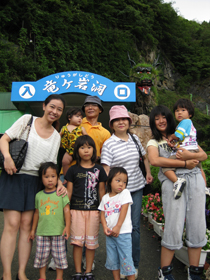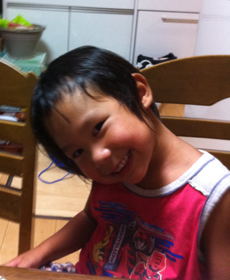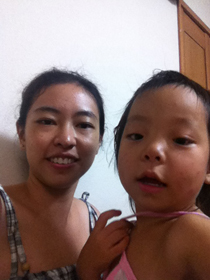

Featured Article of the Month
The Culture Of “Omotenashi”
By Ms Han Lilin
While pursuing a master’s degree in linguistics and cultures in Nagoya University, I was very fortunate to have had the opportunity to gain insight into the complex yet intriguing Japanese culture. What left me with the most wonderful memories was the concept of “omotenashi” or the world-renowned “Japanese hospitality”. |
|
“Omotenashi”, although often associated with the meticulous and thoughtful service in the Japanese retail or tourism industry, can actually be found in the littlest of things. As a MEXT scholar, I had a very special lesson in “omotenashi” during compulsory homestay program.
I was placed in a small town of Fukude in Shizuoka with a couple who had opened their home to eight foster children whose ages ranged from 1 to 15 years old. Having come from a small family consisting of only my parents and a younger brother, I was quite apprehensive about having to face eight children but the little ones welcomed me with huge smiles and excited calls of “O-ne-san” (“Big Sister”). |
 |
| The children were looking forward to my arrival as “O-tou-san” (my host “father”) had promised a round of mini fireworks and sparklers in the yard that evening to welcome me. As night fell, the children could hardly contain their excitement as they brought out the sparklers, buckets of sand and water in anticipation of what “O-tou-san” referred to as the family-style “natsu matsuri” (“summer festival”). As expected, a tussle nearly broke out among the children as they made a grab for the sparklers while I lingered at the background, not wanting to deprive them from their share. As they started lighting the sparklers, the children turned to look for me and realised that I did not have any. Each of them began handing me part of their hard-won stash insisting that “O-ne-san” shared their sparklers. |  |
| During my stay, eating out with the entire family would be a logistical nightmare. We have all seen families struggle during meal times in restaurants with one or two children, not to mention eight. However, the very resourceful “O-kaa-san” (my host “mother”) came up with an idea of setting up a tempura restaurant right in her kitchen. The children and I would role-play as customers and everyone had a chance to shout out their orders to “O-kaa-san” who would fry our orders on the spot. Although eager to order their favourite ingredients, the children always made it a point to ask what I wanted first or shouted, “Let’s have O-ne-san’s recommendation”! |  |
| With so many people in the family, resources had to be carefully managed. There were no expensive toys lying around, books and clothes had to be shared and the occasional sweet treats had to be distributed equally in small bite-sizes. Even then, the children, at a tender age, showered me with generosity and hospitality. From them I learnt and experienced the purest and rawest form of “omotenashi”, Japanese hospitality which came straight from the heart. |  |
About the Author
|
Ms Han Lilin graduated in law from the UK. As an undergraduate, she took up the Japanese language as an additional curriculum module. After a few years in legal practice, she decided to pursue her love for languages and completed a Master of Arts Degree in Linguistics and Cultures under the Global 30 program in Nagoya University as a scholar of the Japanese Ministry of Education, Culture, Sports, Science and Technology. She currently works as a freelance translator and a legal consultant. * All photos used in this article are provided by the author / © Ms Han Lilin |
|
Japan Creative Centre 4 Nassim Road, Singapore 258372 +65 6737 0434 / jcc@sn.mofa.go.jp http://www.sg.emb-japan.go.jp/JCC Nearest parking at Orchard Hotel & Delphi Orchard |
 |